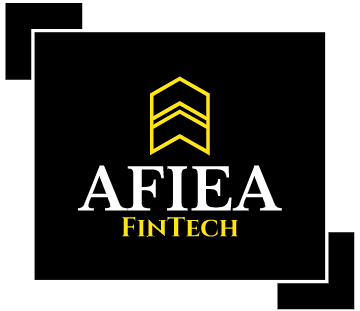Access FinTech and AI Innovations Made Easy
Intelligence. Strategy. Innovation. Research.
Welcome to AFIEA - a leading independent financial technology consultancy based in Los Angeles, California.
AFIEA's goal is to support our clients differentiate, grow, and compete by doing things more effectively with financial insights and technology adoption.
With our timely and valuable industry knowledge and expertise, we are here to help you understand and analyze financial services and technology trends, regulations, products, and services to gain a unique advantage in the marketplace.
Regulation changes have a significant impact on the financial services industry. We are here to help understand and analyze any critical issues facing the financial services industry today.
Your needs could be triggered by government rules, disruptive competitive trends, demanding customer requirements, or challenges and pain points. In most cases, we will show you how technology can help institutions adapt to new changes.
2025 Regulation Updates
- The new bill of Fair Investment Opportunities for Professional Experts Act expands the eligibility criteria for an accredited investor for purposes of participating in private offerings of securities to include an individual determined by the Securities and Exchange Commission (SEC) to have qualifying professional knowledge through educational or professional experience. The bill aims to allow a wider range of individuals to participate in private investment opportunities, potentially increasing the pool of available capital for small businesses and startups. This new legislation directs the SEC to revise the existing definition of accredited investor in Regulation D (net worth of over $1 million or an annual income exceeding $200,000) to include individuals with demonstrable professional knowledge through education, professional experience, or other qualifications.
- The European Union has introduced new legislation on artificial intelligence: The EU AI Act. It lays the foundations for the regulation of AI in the EU. It has significant impact on AI and FinTech applications in the financial industry. Currently, there is no comprehensive federal legislation or regulations in the US that regulate the development of AI or specifically prohibit or restrict their use.
- The Securities and Exchange Commission has released 2025 updated guidance on its new marketing performance reporting rules, answering questions on the net performance requirement as it relates to abstracted performance as well as determining whether certain portfolio or investment characteristics are performance.
- FINRA published its 2025 Annual Regulatory Oversight Report. The 80-page report hits on a number of familiar themes and subjects and includes two new areas of focus: 1) risks arising from the use of third-party vendors, including cybersecurity and data privacy risks, and 2) extended-hours trading services, which have become increasingly common across the industry. FINRA offers new observations regarding registered index-linked annuities (RILAs) in the context of Reg BI obligations. The report also reflects FINRA’s increased scrutiny of risks associated with emerging technologies, with a particular focus on generative artificial intelligence (AI) tools.
- The FINRA Rule 6500 Series, also known as the SLATE Rules, are a set of rules that require reporting of securities loans to the Securities Lending and Transparency Engine (SLATE). The SEC approved the rules on January 2, 2025. Covered persons and reporting agents must report specific terms of loans to SLATE on the same day the loan is made or changed. Reporting requirements take effect on January 2, 2026. Public data dissemination requirements take effect on April 2, 2026.
2024 Regulation Updates
- The new Retirement Security Rule from the U.S. Department of Labor's Employee Benefits Security Administration makes sure that the investment advice you get is in your best interest. The updated rules apply to persons and financial institutions who give you professional advice on how to invest your retirement savings. It requires these trusted advice providers to act as fiduciaries, which means they must work in your best interests. These new protections start to take effect on September 23, 2024, though additional requirements will kick in 1 year after that.
- The Financial Innovation and Technology for the 21st Century Act (“FIT 21”) establishes a regulatory framework for digital assets. The bill provides the Commodity Futures Trading Commission (CFTC) with exclusive regulatory authority over cash or spot markets for digital commodities. CFTC must regulate a digital asset as a commodity if the blockchain, or digital ledger, on which it runs is functional and decentralized. The bill classifies a blockchain as decentralized if, among other requirements, no person has unilateral authority to control the blockchain or its usage, and no issuer or affiliated person has control of 20% or more of the digital asset or the voting power of the digital asset. SEC must regulate a digital asset as a security if its associated blockchain is functional but not decentralized. However, the bill establishes certain exceptions to SEC regulation for digital assets that limit annual sales, restrict non accredited investor access, and satisfy disclosure and compliance requirements.
- The U.S. Department of Labor released final regulations defining an investment advice fiduciary, as well as amendments to several prohibited transaction class exemptions (“PTE”). The Retirement Security Rule protects retirement investors from harmful conflicts of interest when getting advice about their investments in retirement accounts. Investors who are making decisions for their retirement savings expect advice from trusted financial professionals to be in the best interest of the retirement investor, not in the interests of the financial professional. This rule makes sure it is.
- The SEC’s focus on the new Marketing Rule continues. I has released a new risk alert detailing trouble spots it’s seeing in exams. The risk alert, released by the Division of Examinations, shares preliminary observations to encourage accurate completion of the Marketing Rule items contained in Form ADV and to promote compliance with Advisers Act Rule 206(4)-7 (the Compliance Rule), as well as Advisers Act Rule 204-2 (the Books and Records Rule) and the Marketing Rule’s General Prohibitions.
- The SEC has adopted new rules (IA-6383) under the Investment Advisers Act of 1940. The rules are designed to protect investors who directly or indirectly invest in private funds by increasing visibility into certain practices involving compensation schemes, sales practices, and conflicts of interest through disclosure; establishing requirements to address such practices that have the potential to lead to investor harm; and restricting practices that are contrary to the public interest and the protection of investors. These rules are designed to prevent fraud, deception, or manipulation by the investment advisers to those funds.
- The SEC has recently published its 2024 Examination Priorities and updated its rules on RIA marketing compliance requirements. The Investment Advisers Act of 1940 still governs the activities of investment advisors in the US. Advisors with $110 million or more in assets under management must register with the SEC unless an exemption is available.
- The EU has agreed the text for regulating providers of ESG ratings and said it will extend the regulation to cover data. The new rules aims to strengthen the reliability and comparability of ESG ratings by improving the transparency and integrity of the operations of ESG ratings providers and preventing potential conflicts of interests.
- FINRA has adopted new rules approved by SEC for its remote inspections pilot program and to treat home offices as ”residential supervisory locations.” The new rules reflect today’s hybrid work environment while still providing critical investor protections.
- The SEC approved spot bitcoin ETFs for trading in the US in a decision that has been years in the making. The SEC approved 11 bitcoin ETF applications from different issuers, including Grayscale, Fidelity, BlackRock, and VanEck, among other.
- The U.S. Department of Labor announced a final rule to help employers and workers better understand when a worker qualifies as an employee and when they may be considered an independent contractor under the Fair Labor Standards Act. The rule provides guidance on proper classification and seeks to combat employee misclassification.
2023 Regulation Updates
- The DOL has proposed a new rule that would protect workers' retirement savings by updating the regulation defining a fiduciary under the Employee Retirement Income Security Act (ERISA). The "Retirement Security Rule: Definition of an Investment Advice Fiduciary" would affect how investors get advice on their job-based retirement accounts and other retirement savings plans and how investment advice providers must act if they have a conflict of interest.
- The SEC adopted new Rule 10c-1a, which will require certain persons to report information about securities loans to a registered national securities association (RNSA) and require RNSAs to make publicly available certain information that they receive regarding those lending transactions. The rule is intended to increase the transparency and efficiency of the securities lending market.
- The SEC adopted amendments to certain rules that govern money market funds under the Investment Company Act of 1940. The amendments will increase minimum liquidity requirements for money market funds to provide a more substantial liquidity buffer in the event of rapid redemptions. The amendments will also remove provisions in the current rule that permit a money market fund to suspend redemptions temporarily through a gate and allow money market funds to impose liquidity fees if their weekly liquid assets fall below a certain threshold. These changes are designed to reduce the risk of investor runs on money market funds during periods of market stress.
- The Bank Term Funding Program (BTFP) was created to support American businesses and households by making additional funding available to eligible depository institutions to help assure banks have the ability to meet the needs of all their depositors. The BTFP offers loans of up to one year in length to banks, savings associations, credit unions, and other eligible depository institutions pledging any collateral eligible for purchase by the Federal Reserve Banks in open market operations, such as U.S. Treasuries, U.S. agency securities, and U.S. agency mortgage-backed securities. These assets will be valued at par. The BTFP will be an additional source of liquidity against high-quality securities, eliminating an institution’s need to quickly sell those securities in times of stress.
- Compliance with the books and records requirements of the federal securities laws is essential to investor protection and well-functioning markets. The SEC has brought 30 enforcement actions and ordered over $1.5 billion in penalties to drive this foundational message home. To further prevent widespread and long standing failures by the firms and their employees to maintain and preserve electronic communications, the SEC issued a new alert on electronic messaging.
- Under new regulation H.R. 2797 (Equal Opportunity for All Investors Act of 2023), if an investor can demonstrate competency with various types of investments through an exam, then she/he can qualify as an ‘accredited investor’. This new bill modernizes the outdated definition that has inappropriately sidelined sophisticated-but-not-wealthy individuals from high-growth asset classes historically reserved for the wealthiest individuals.
- The LIBOR to SOFR transition is a significant event in the financial markets. It affects the cost of borrowing money and many financial instruments, including loans, mortgages, derivatives, and other products such as floating-rate preferred stocks. The Federal Reserve Board oversees the LIBOR rate switching to the SOFR rate transition and CFPB issued Rule to Facilitate Orderly Wind Down of LIBOR.
- The SEC has warned that broker-dealers are using outdated systems to ensure Regulation Best Interest compliance, which has resulted in violations in areas like rollover and account recommendations.
- The SEC’s new Marketing Rule includes a directive on displaying gross and net performance. An advisor may not show gross performance of one investment or a group of investments without also showing the net performance of that single investment or group of investments, respectively. In addition, the adviser must satisfy the other tailored disclosure requirements as well as the general prohibitions.
- The SEC is expected to finalize its first ruling on mandatory climate risk disclosures for public companies. The proposed rules, introduced last March as a way to improve transparency for investors, expand the requirements for corporate disclosure of financial risk to include climate-related risks and their potential impact on companies’ business models and financial outlooks.
- The U.S. Department of Labor (DOL) announced its adoption of amendments to the regulation setting out retirement plan fiduciary duties of prudence and loyalty under the Employee Retirement Income Security Act of 1974 (ERISA) as they relate to investment selection and management. Particularly, the final regulation clarifies the ability of fiduciaries to consider non-financial characteristics, such as climate change and environmental, social and governance (ESG) factors, when selecting plan investments.
2022 Regulation Updates
- The SEC approved for public comment proposed Regulation Best Execution, which would set forth the agency’s best-execution standard for client trades. The new proposed Regulation Best Execution aims to improve upon the Financial Industry Regulatory Authority’s outdated best execution rule and continues to permit payment for order flow.
- The Department of Labor finalized a rule to explicitly permit retirement plan fiduciaries to consider climate change and other ESG factors when selecting investments and exercising shareholder rights. It makes clear that retirement plan decision-makers called fiduciaries may—but aren’t required to—consider the effect ESG factors have on an investment or when exercising shareholder voting rights.
- The SEC approved final rules on proxy-voting disclosure that requires institutional investment managers to report how they vote on executive compensation matters, also known as say-on-pay votes. The new amendments require funds and managers to categorize the votes they cast; standardize the way the voting is reported and disclose how securities lending activities impacted their voting, etc. It is expected to help modernize the reporting of proxy votes.
- SEC Rule 206(4)-1 is the first antifraud rule governing the activities of investment advisers (IA). It merges the "Advertising Rule" and the "Solicitation Rule" to create a single new "Marketing Rule." This rule is the first substantive change to the Investment Advisers Act of 1940. It aims to adapt to the evolving marketing practices and technologies adopted by the asset management industry. New regulations, effective on 11/4/2022, will change how private equity and venture capital managers market new funds.
- In a series of moves, the Financial Stability Oversight Council published Report on Digital Asset Financial Stability Risks and Regulation after White House released first-ever Comprehensive Framework for Responsible Development of Digital Assets. The Federal Reserve Bank also just published Beyond the Hype: An Introduction to Crypto Assets.
- The Inflation Reduction Act aims to make historic investments in the nation’s social safety net. The new bill makes the largest investment in combating climate change in U.S. history, lowers the cost of prescription drugs and raises taxes on corporations. Early study shows that in reality, the Inflation Reduction Act likely won’t reduce prices at all.
- The SEC has approved single-stock ETFs as the latest complex product coming to market. Unlike traditional ETFs, or even other levered or inverse ETFs, these levered or inverse single-stock ETFs track the price of a single stock rather than an index, eliminating the benefits of diversification (SEC Statement on Single-Stock ETFs).
- Crypto assets are largely unregulated today. Under groundbreaking new rules from EU, cryptocurrency companies will soon need a license and customer safeguards to issue and sell digital tokens. In the meantime, US regulators are handing the bulk of their oversight to the Commodity Futures Trading Commission (CFTC).
- In one of the most ambitious agendas in its history, the U.S. Securities Exchange Commission has simultaneously undertaken multiple rulemakings that would affect nearly every investor and public company in America. In the fall of 2021, the SEC released its list of upcoming new rules with 54 separate items. Since December, the SEC issued 24 proposals making an array of changes to complicated securities laws and complex financial markets. Just 12 such proposals total roughly 3,500 pages of text and ask 2,200 separate questions.
- The U.S. Securities and Exchange Commission (SEC) issued new guidance to broker dealers and investment advisors on how to satisfy their obligations to retail investors and comply with agency rules when recommending investment products.
- The Financial Industry Regulatory Authority (FINRA) published their 2022 Exam Report. The report brings renewed attention to meeting the regulatory requirements, as it shows that many broker-dealers are failing to address various aspects of Reg BI’s Care Obligation. Many of FINRA’s findings are related to making best interest product recommendations, documentation and disclosures. These issues can be resolved efficiently and cost-effectively by using technology.
- The European Union’s Sustainable Finance Disclosure Regulation (SFDR) has come into force since March 2021. The SFDR is designed to help institutional asset owners and retail clients understand, compare, and monitor the sustainability characteristics of investment funds by standardizing sustainability disclosures. Under the SFDR, firms must make both firm and product-level disclosures about the integration of sustainability risks, the consideration of adverse sustainability impacts, the promotion of environmental or social factors, and sustainable investment objectives.
- Registered investment advisors view the new SEC marketing and advertising rule as the hottest compliance topic recently. Here is an RIA compliance checklist designed to help advisors navigate the complexities of the new regulation for advertisements and other forms of marketing.
- ESG accounting is a mess. Competing initiatives mean there’s no uniform set of standards for measuring a company’s progress on sustainability. One possible sustainability reporting standard could come from the International Accounting Standards Board (ISSB). Ideally, the SEC and EU can use its standards to help define new regulations.
- The Federal Reserve Board released a discussion paper that examines the pros and cons of a potential U.S. central bank digital currency, or CBDC. It invites comment from the public and is the first step in a discussion of whether and how a CBDC could improve the safe and effective domestic payments system (2022).
- The Securities and Exchange Commission will be active this year in levying enforcement actions related to Regulation Best Interest (and more on Form CRS), while the Labor Department will push for a fiduciary rule that tightens rollover and insurance product recommendations (2022).
- ISO 20022 is an emerging global and open standard for payments messaging. It creates a common language and model for payments data across the globe. It is a standard that is not controlled by a single interest and can be used by anyone in the industry and implemented on any network. The complexity of implementing ISO 20022 is a significant challenge that offers the opportunity for financial institutions to re-evaluate their business models and prepare their infrastructure for the digital future of payments (2022).
- The SEC's Risk Alert warns about widespread compliance issues among advisers providing robo-advisory services, as well as with those who offer discretionary investment advisory programs (2022).
2021 Regulation Updates
- The SEC has approved the Public Company Accounting Oversight Board’s (PCAOB) Rule 6100, Board Determinations Under the Holding Foreign Companies Accountable Act. Rule 6100 will establish a framework for the PCAOB’s determinations under the Holding Foreign Companies Accountable Act (HFCAA) that the PCAOB is unable to inspect or investigate completely registered public accounting firms located in a foreign jurisdiction because of a position taken by an authority in that jurisdiction. The new rule will keep foreign companies off US stock exchanges if US regulators have not inspected the companies' auditors. The rule, which targets companies in jurisdictions including China and Hong Kong, could prompt removal of many Chinese companies from US exchanges (2021).
- Investment advisors can no longer rely on SEC staff letters about current advertising and cash solicitation rules. The SEC’s Division of Investment Management recently issued an update on its new Marketing Rule, amended Rule 206(4)-1, stating that it was rescinding a bevy of SEC Staff Letters that provided guidance (2021).
- The SEC's Strategic Hub for Innovation and Financial Technology (FinHub) provides regulatory updates regarding emerging technologies in financial, regulatory, and supervisory systems, including in the areas of distributed ledger technology (for example, digital assets), automated investment advice, digital marketplace financing, and artificial intelligence/machine learning. Through internal and external engagement, FinHub helps shape the SEC’s approach to technological advancements in the financial industry (2021).
- The newly amended (SEC) Rule 15c2-11 boosts investor disclosures by requiring off-exchange issuers, frequently penny-stock companies that do not meet the main exchanges' listing standards, to make accurate, up-to-date financial information publicly available. The Pink Market is home to an array of issuers, including reputable foreign companies seeking a gateway to the United States. But some are highly risky and volatile penny-stock companies in distress, delinquency or simply shells (2021).
- EU's Sustainable Finance Disclosure Regulation (SFDR) requires certain financial service institutions, most notably those managing or marketing investment or pension funds/products in the EU, to disclose on various sustainability considerations to both potential investors and the general public. Index-tracking and exchange traded funds are at risk of missing out on demand for sustainable funds as they struggle to adapt to new EU disclosure rules (2021).
- Two blockchain bills direct the Secretary of Commerce and the Federal Trade Commission (FTC) to study and report on the use of blockchain technology and digital tokens. The Blockchain Innovation Act and part of the Digital Taxonomy Act will be incorporated into a broader Consumer Safety Technology Act. If signed into law, another proposed Securities Clarity Act would treat digital assets as commodities, not securities, meaning startups would be free to sell and trade cryptocurrencies without having to worry about registering them as securities with the SEC (2021).
- ESG Disclosure Simplification Act of 2021 was approved by the U.S. House. The final bill, the Corporate Governance Improvement and Investor Protection Act, requires an issuer of securities to annually disclose to shareholders certain environmental, social, and governance metrics and their connection to the long-term business strategy of the issuer. The bill also establishes the Sustainable Finance Advisory Committee that must, among other duties, recommend to the Securities and Exchange Commission policies to facilitate the flow of capital towards environmentally sustainable investments (2021).
- The SEC approved Nasdaq's proposal to allow companies to conduct primary direct listings on The Nasdaq Global Select Market. This approval comes nearly five months after the SEC approved a similar proposal by the New York Stock Exchange (NYSE). Following these approvals, companies may now sell new shares and raise capital in direct listings, subject to the satisfaction of certain requirements, on either stock exchange.
- The SEC outlined risk concerns relating to ESG investing activities. Its Division of Examinations published a risk alert describing the areas on which the staff is focusing in examinations of registered investment advisers’ and funds’ ESG offerings. This alert comes as many financial firms are finding gold in the green and are offering ESG products because it is lucrative to do so (2021).
- The Securities and Exchange Commission’s Division of Examinations (EXAMS) published its report on 2021 Examination Priorities. The 2021 Examination Priorities cover eight broad topics, including Financial technology (Fintech) and innovation such as digital assets. Also Robo-advisors have a fiduciary duty to provide adequate disclosure to investors and to insure that the information is understood (2021).
- SPACs are listed shell companies that raise funds to acquire a private company with the purpose of taking it public, allowing such targets to sidestep a traditional initial public offering. The U.S. securities regulator issued accounting guidance for special purpose acquisition companies, or SPACs, The guidance suggests that many SPACs may potentially have to refile their financial statements to account for the warrants as a liability (2021).
- The Federal Reserve created a new Supervision Climate Committee (SCC) to strengthen our capacity to identify and assess financial risks from climate change and to develop an appropriate program to ensure the resilience of our supervised firms to those risks. To complement the work of the SCC, the Federal Reserve Board is establishing a Financial Stability Climate Committee (FSCC) to identify, assess, and address climate-related risks to financial stability (2021).
- The SEC launched a new ESG website to bring together agency actions and the latest information about climate and environmental, social and governance (ESG) investing. In response to increased investor demand for this information, the page will appear on the front page of SEC.gov and will be updated as the agency continues to respond to investors. SEC will look at how climate and ESG intersect with broader regulatory framework to get investors the information they need to plan for their financial future (2021).
- The SEC has approved the new NYSE direct listing which could help startups save on bank fees and capture more of the gains in their share price when they go public. Primary direct listings represent an alternative way for companies to fairly and efficiently offer shares to the public in a manner that preserves important investor protections (2021).
- The Labor Department has published final rules regarding the use of environmental, social and governance (ESG)-themed investments by retirement plans. It requires plan fiduciaries to select investments and investment courses of action based solely on financial considerations relevant to the risk-adjusted economic value of a particular investment or investment course of action. The regulation is called the “Improving Investment Advice for Workers & Retirees Exemption”(2021).
- The Labor Department has set its DOL Fiduciary Prohibited Transaction Exemption to align with the Securities and Exchange Commission’s Regulation Best Interest. The new rules will have a significant impact on rollover recommendations and advice to IRAs (2021).
- The new and improved 401(k) 2.0 will allow smaller companies to benefit from broader opportunities, more flexibility and lower costs. Beginning January 1, 2021, any company can pool their 401(k) plan with any other company. What is SEP, MEP, or PEP ?(2021)
2020 Regulation Updates
- The SEC adopted rules to modernize the infrastructure for the collection, consolidation, and dissemination of market data for exchange-listed national market system stocks (“NMS market data”). This infrastructure has not been significantly updated since its initial implementation in the late 1970s. The adopted rules update and significantly expand the content of NMS market data to better meet the diverse needs of investors in today’s equity markets. In particular, the Securities Information Processor (SIP) links the U.S. markets by processing and consolidating all protected bid/ask quotes and trades from every trading venue into a single, easily consumed data feed.
- The Securities and Exchange Commission has set its regulatory sights on ESG investing. For the first time, it has made reviewing how registered investment advisers handle ESG an examination priority. The updated Regulation S-K rules include new SEC ESG Disclosure guidelines that require the accuracy and adequacy of disclosures provided by RIAs offering clients new types or emerging investment strategies, such as strategies focused on sustainable and responsible investing, which incorporate environmental, social, and governance criteria (2020).
- IFRS 17 is an International Financial Reporting Standard that was issued by the International Accounting Standards Board in May 2017. Its objective is to improve financial reporting by providing more transparent and comparable information. The ultimate goal of IFRS 17 is to ensure “high quality, understandable, enforceable and globally accepted financial reporting standards based upon clearly articulated principles”. Starting in 2022, it will introduce additional requirements regarding calculation and disclosure of various financial measures (2020 - 2022).
- Open banking regulation around the world - Over recent years open banking has become synonymous with the digitalization and transformation of the financial sector. New regulation has been one of the major drivers, starting in Europe before quickly spreading around the world (2020).
- Federal Reserve Board Regulation D is a federal law that says you can't make more than six withdrawals or transfers per month out of your savings account. The same rules also apply to money market accounts. The rule is in place to help banks maintain reserve requirements (2020).
- In Transforming Paradigms: Global AI in Financial Services Survey, over 150 senior financial services executives in both fintech and incumbent financial institutions responded to a range of questions on the impact AI will have on the industry, concluding that there will be a significant gap between firms that quickly implement AI and firms that lag behind. Artificial intelligence (AI) is in the process of transforming a variety of models in the global financial services industry. This global survey was jointly conducted by the Cambridge Centre for Alternative Finance (CCAF) at the University of Cambridge Judge Business School and the World Economic Forum (2020).
- Payments in the Digital Era: Who Bears the Risks of High-Speed Transactions? Early response to the rise of digital payment intermediaries focused on credit risk, interoperability and transparency. Regulators that have identified mobile and online offerings of traditional banking services have often extended existing regulations to the new domain (2020).
2019 Regulation Updates
- The SECURE Act has become law. The bill will affect retirement planning practice and impact the financial services industry (2019).
- The SEC has authority to establish capital and margin requirements for broker-dealers. The SEC originally proposed capital and margin rules in 2012, 2013 and 2014 (the “Proposed Rules”). In October 2018, the SEC reopened the comment period for the Proposed Rules. The new Final Rules relating to margin and segregation differed significantly from those adopted and implemented by the Commodity Futures Trading Commission (2019).
- Financial Data Exchange (FDX) is a nonprofit dedicated to unifying the financial industry around a common, interoperable, royalty-free standard for secure and convenient consumer and business access to their financial data. Leading financial institutions and fintechs are committed to FDX’s unifying global standard for data sharing. They’re empowering consumers with the access and transparency to make informed financial decisions (2019).
- Global Financial Innovation Network (GFIN) is an organization of 30+ regulatory agencies worldwide working together to support financial innovation in the best interests of consumers. It seeks to provide a more efficient way for firms to interact with regulators as they seek to develop, execute and distribute new innovations. It sets new licensing requirements and national standards for financial technology companies (2019).
- FDIC's new mission (FDiTech) to promote the adoption of innovative technologies across the financial services sector (2019).
- Two New SEC Standards: Regulation Best Interest and the Investment Adviser Fiduciary Duty (2019).
2018 Regulation Updates
- In November 2018, the U.S. Securities and Exchange Commission adopted amendments to Rule 606 of Regulation NMS to require broker-dealers to provide enhanced disclosure of information regarding the handling of their customers’ orders. Rule 606, as amended, requires more meaningful disclosures relevant to today’s marketplace that encourage broker-dealers to provide more effective and competitive order handling and routing services and that also improve the ability of their customers to determine the quality of such broker-dealer services (2018).
- On July 18, 2018, the U.S. Securities and Exchange Commission approved the final Regulation Alternative Trading System (“Regulation ATS”) to require alternative trading systems (“ATSs”) that trade national market system (“NMS”) stocks to file with the SEC new Form ATS-N to begin operations or, for currently operating ATSs, to continue operations (2018).
- MiFID II, a European Union packet of financial industry reform legislation, rolled out on January 3, 2018. It imposes more reporting requirements and tests in order to increase transparency and reduce the use of dark pools (private financial exchanges that allow investors to trade without revealing their identities) and over-the-counter (OTC) trading. Under the new rules, the trading volume of a stock in a dark pool is limited to 8% over 12 months. The new regulations also target high-frequency trading. Algorithms used for automated trading have to be registered, tested and have circuit breakers included (2018).
- S. 2155, the Economic Growth, Regulatory Relief, and Consumer Protection Act (2018).
- IFRS 9 Financial Instruments is the IASB’s replacement of IAS 39 Financial Instruments: Recognition and Measurement. The Standard covers investment accounting requirements for recognition and measurement, impairment, derecognition and general hedge accounting (2018).
2017 and Earlier Regulations (partial)
- SEC Money market reform rule amendments to address any potential financial instability that could be caused by money market funds (2016).
- In 2002, the United States Congress passed the Sarbanes-Oxley Act (SOX) to protect shareholders and the general public from accounting errors and fraudulent practices in enterprises, and to improve the accuracy of corporate disclosures (2002, 2019).








